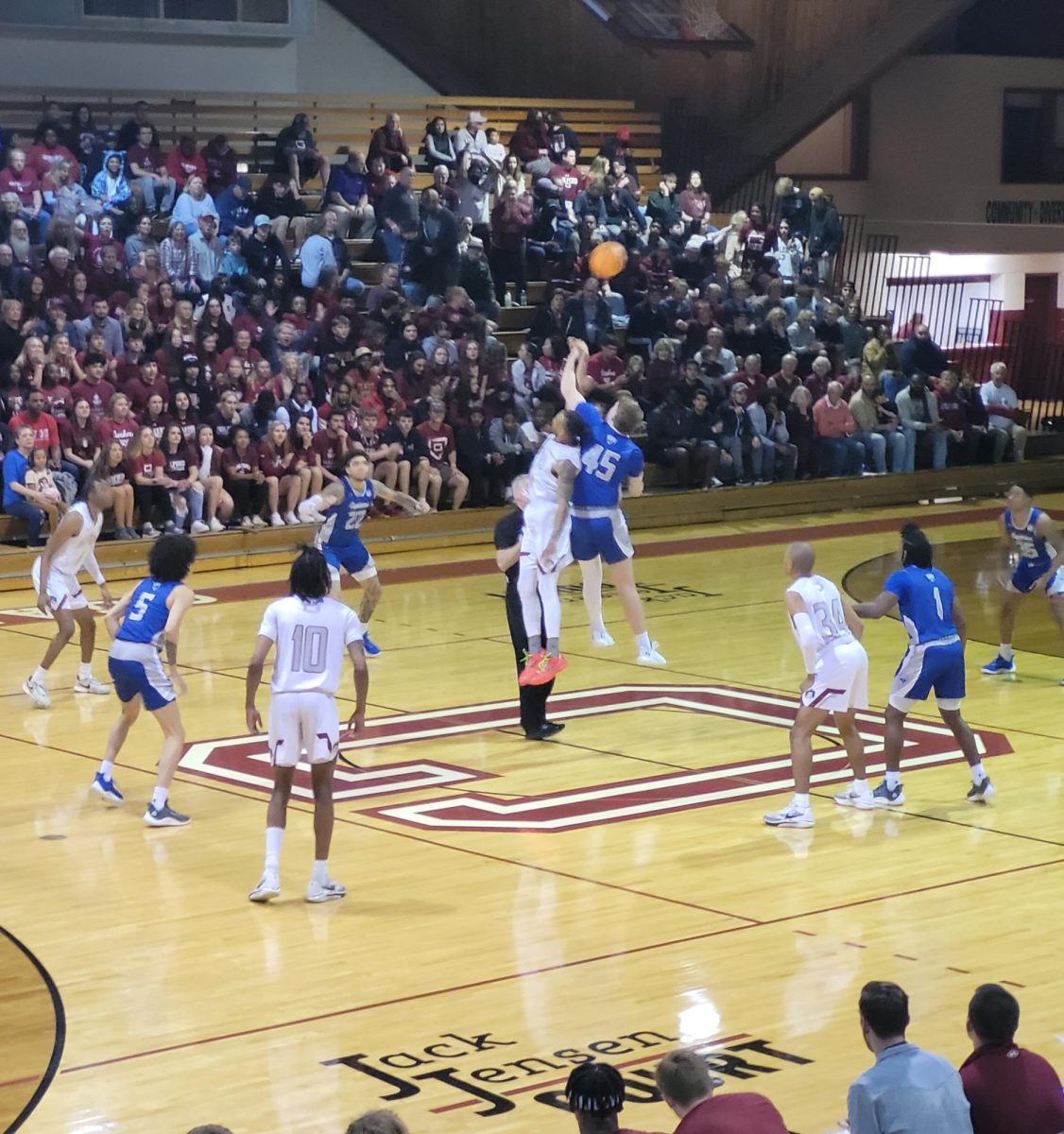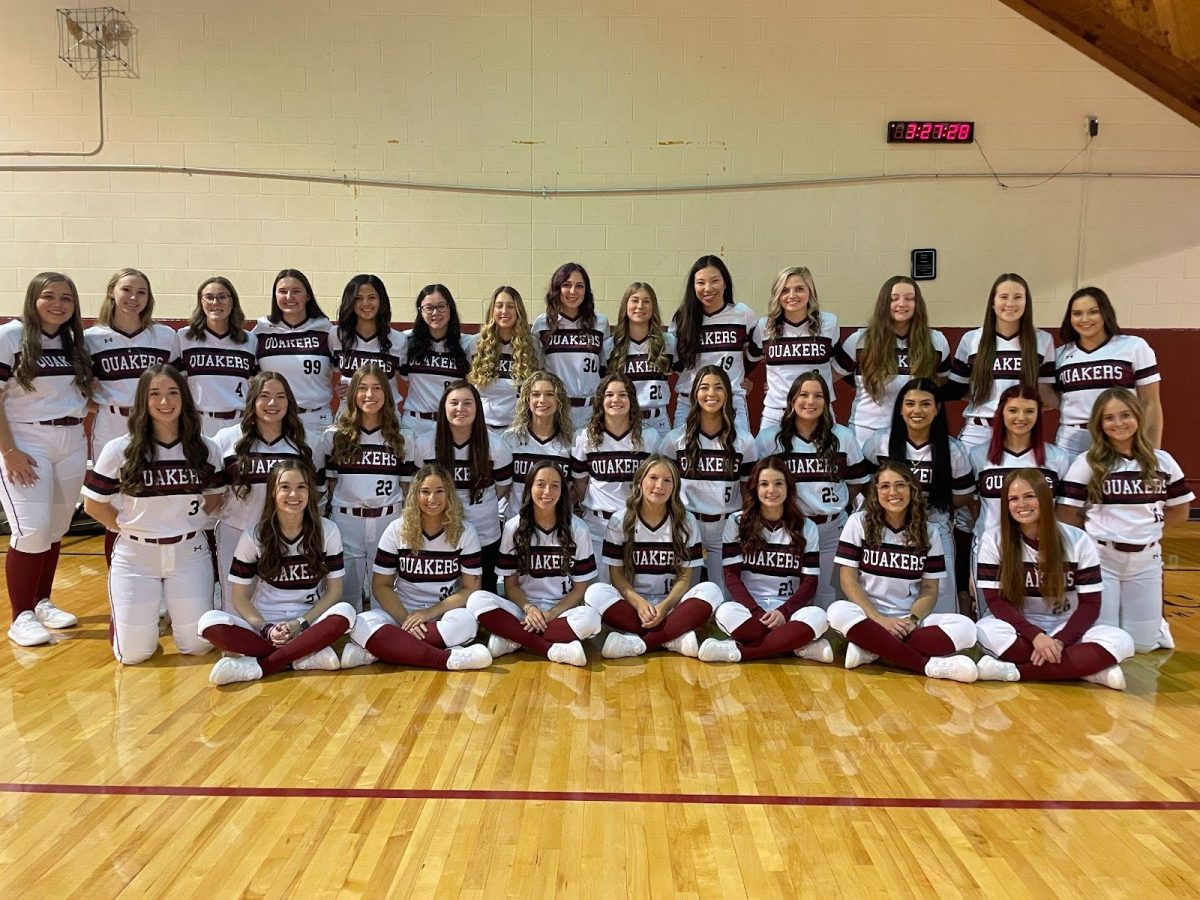Students dressed in white jackets, pants, gloves and masks thrust at each other with blunt-edged swords on the grass outside of Founders Hall.
Though fencing may not seem Quakerly, teams around the country build community and integrity through the sport.
“Having people who are there for you and being there for them whether winning or not is absolutely amazing,” said Haverford College sophomore Diana Schoder. “The (fencing) team is incredibly fun and supportive.”
Guilford College’s fencing club was restarted this year by sophomore and The Guilfordian World & Nation editor Abe Kenmore. It is currently run through the martial arts club.
“Fencing is considered a martial art, but if it grows big enough, there’s no reason it shouldn’t have its own club,” said junior Daniel Finn.
Though not a competitive sport at Guilford yet, schools across the country fence competitively.
“It is extremely intense and requires the utmost physical strength and mental toughness,” said Northwestern University sophomore and competitive fencer Kimmy Fishman. “I have never worked harder than I have with fencing.”
All fencing uses three types of swords: sabers, foils and épées.
“Sabers are the ones that look like pirate swords, and foils are really light, typically for stage fighting,” said first-year Laura Navey. “Épée’s are the really heavy ones. They all have different rules.”
As a sport, fencing requires immense focus.
“Fencing is not a mindless sport where you can just kick or throw a ball and hope it works,” said Fishman. “It makes you constantly think about what you are going to do next.”
According to historians, fencing came to the West in the 1400s.
“Western fencing developed in response to a number of circumstances,” said Professor of History Timothy Kircher. “Within Western Europe, trainers began, at least those we know by 1400s, to teach specific sword-fighting methods in the train of chivalry, judicial duels and constant internal warfare.”
Fencing became a popular Western sport in the late 1700s.
“It started in earnest after the widespread use of gunpowder in warfare, since swordplay became a less important feature of military combat,” said Kircher. “Shakespeare often speaks of fencing in his plays.”
Even Quakers have fenced throughout the years.
“Quakers themselves, in their history, knew fencing certainly before the Peace Testimony of 1660,” said Kircher. “Martial arts in general are those forms of play combat that, in essence, are designed to prevent violence.”
Today, fencing is a club, competitive and even an Olympic sport.
“Olympic fencers (are) just as athletic and talented as any sports top tiers of competition,” said Northwestern University sophomore Jason Glass. “You cannot casually fence and expect to perform well.”
At Guilford, a fencing club gives students an exciting new opportunity.
“I’m totally not an expert on fencing, (but) I’m excited to learn it,” said Finn.
Many students are excited to reengage in the sport.
“I had tried almost every sport out there and nothing worked for me,” said Navey. “I heard about fencing, and I was like ‘oh my God, that’s really cool, I want to learn how to sword-fight.’ I signed up, and I got stuck.”
Those who have been fencing for years can attest to the greatness of the sport.
“At this point, it’s difficult to imagine not fencing,” said Schoder.







